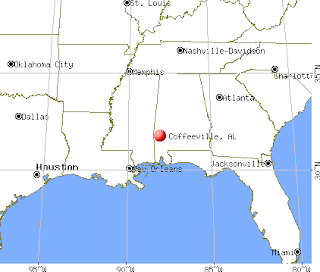Tracking devices are often associated with nervous parents seeking the locations of their teenagers behind the wheel or dangerous suspects in crime investigations. One normally would not associate a tracking device with their iPhone or iPad.
A report came from a technology conference in San Francisco. Two computer programmers presented their research that the iPhone and 3G versions of the iPad began logging users' locations around a year ago. This occurred when Apple updated its mobile operating system.
Updates are constantly available for the iPhone and iPad, but one update caused a new hidden file to periodically store location data. This data was retrieved from Wi-Fi networks and cellphone towers. To some privacy advocates, this location technology crossed the line.
Executive director of the Electronic Privacy Information Center Marc Rotenberg said, "The secretive collection of location data crosses the privacy line. Apple should know better than to track iPhone users in this way."
This type of location tracking is used by law enforcement agents, but they must contact the cellphone provider directly. Most officers need a search warrant before doing so. Now, the tracking information is synced to the computer when the user plugs the iPad or iPhone in. The data is more vulnerable to access by hackers. This information could also be accessible to strangers if the iPhone or iPad is lost or stolen.
Many questions are left unanswered. Apple has not provided any response as to why this information is being tracked at all or whether or not they are gaining access to this information. Many wonder if this is fair treatment by Apple to their customers.
A lawyer specializing in privacy and copyright Christina Gagnier said, "Collecting this data is not illegal, but it does matter or not this is explicitly spelled out in Apple's terms of use. Apple constantly changes their privacy policy, and it's questionable whether most users are aware this is happening."
Whether or not this is legal, this information did give Apple bad publicity. A vice president of Forrester Research who specializes in security and risk Chenxi Wang said, "It doesn't matter how Apple explains its way out of this, just the fact that consumers know that their phone is being tracked is a very big deal."
I own an iPhone and was not aware of this tracking information until I read this article. It is very startling to me that this has been going on for over a year now. It makes me wonder why Apple set up this hidden file in the first place. Also, I want to know whether or not Apple is accessing this information and for what purpose. It scares me to know that if my phone was to be stolen, the criminal would know where I had been for however long I had owned my phone. Especially with all the danger in the world today, I do not want my location information to be available to anyone. Also, this is upsetting because I had no knowledge that this was occurring.
The article itself was very heavily supported with numerous quotes from various fields. It provided a firm argument for the issue at hand. I would say that the article is biased. It is clearly against the idea of the tracking locations without the knowledge of the consumers. Apple has hurt itself because of this new information outbreak. I am glad someone caught it before it went on too long.













